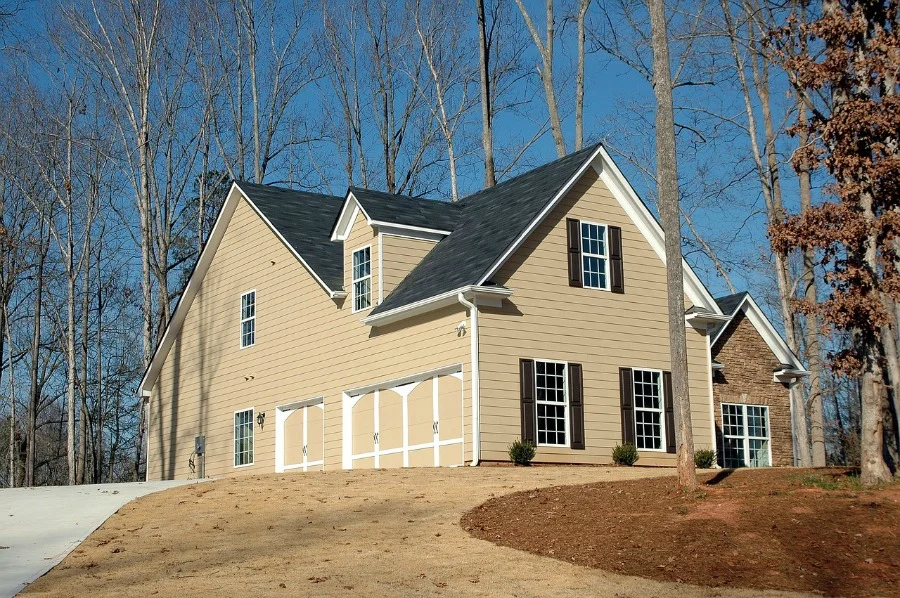This post may contain affiliate links. I only recommend products I use and love. Read the full disclosure here
Last Updated on September 26, 2022 by Alaina
Buying your first home is a big deal. You might have been renting in the past or living with your parents, but now you have a place to truly call home. No more answering to the landlord because, well, you are the landlord. You might even have bigger ideas and hope to become the landlord of your own rental property after buying a house for yourself.

Even though the movies make it seem easy, buying a house or property can be a long, arduous process. The general rule of thumb is that most people need a month from deciding on a house to actually being handed the keys. Sometimes, that period is even longer.
What’s happening during that month? Lots and lots of paperwork. Isn’t bureaucracy just so much fun?
One of the big parts of all that paperwork is finding the right mortgage and agreeing on terms for your house. Many people start the initial process before committing to a house, scoping around for which could be the best deals.
Before you can start working on the kitchen, it’s time to look at your financial options. There are plenty of options out there that will help you take care of the financial side, and we’re going to run through them here.
Fixed-Rate Mortgage
When people say “I have a mortgage”, this tends to be the most typical one out there. Over the lifetime of your mortgage, anywhere from 15-30 years, you’ll be paying one monthly payment with a fixed interest rate the entire time.
This type of loan requires a down payment, is ideal for those with good credit history, and is best for those who are going to stay in their homes for the foreseeable future. Even if you’re not an expert on mortgages, you’re probably pretty familiar with this type of loan.
Adjustable or Variable Rate Loan
The second most common type of home loan out there, the adjustable-rate mortgage is just like the fixed-rate, except the interest rate changes over time. Typically, every year the lender will review the interest rate which could change the monthly payments.
Once again, you don’t have to be an expert to guess that if the interest rate goes up, you pay more. If it goes down, you pay less. Those with poor credit scores or uncertainty about their future place of living tend to opt for these types of loans.
Government-Insured Loans
While the government itself isn’t going to hand out loans, it does attempt to help more Americans become homeowners. There are three government agencies that will back loans for people who are buying a house, the Federal Housing Administration, the U.S. Department of Agriculture, and the U.S. Department of Veteran Affairs.
FHA and USDA loans help those who don’t have enough saved up for a downpayment. USDA typically helps those that are trying to buy in rural areas.
VA loans help those who are active members of the military or veterans. With all three of these loans, there are certain requirements and regulations that must be met ahead of time.
Jumbo Mortgages
These mortgages come with an extra-large set of fries and a 64 oz. soda.
In all seriousness, jumbo mortgages are for those looking into buying a house in higher-cost areas where you can borrow more money. Interest rates are somewhat similar to the other loans we’ve looked at, but you’ll need a great credit score, a sizeable downpayment, and a high enough income in order to qualify.
Bridge Loans
Bridge loans are for those who are attempting to purchase another home while they’re in the midst of selling their current one. The timing doesn’t always line up perfectly, and there may be a period of a few months before you have the money from your old house coming in.
Your new and old mortgages get wrapped into one and when your home is sold, you pay off your old mortgage and your new one is refinanced. It’s a way to avoid going crazy or stressing about dates while buying a house and trying to move.
Hard Money Lenders
Out of all the loans available to help those who are looking into buying a house, this is the most unconventional. Typically reserved for rental properties, these lenders don’t look at your credit score but tend to look at the value of the property you intend on buying.
Instead of 30 years, hard money loans typically last 12 months but can be extended up to five years in certain cases. You’ll pay off interest through the loan term before paying a balloon payment at the end. The majority of homeowners don’t go the hard money route unless they’re intending on renting out the place or buying a house for a rental property.
